Elle représente les Échecs mondiaux en cascade.
Kemp, L., Xu, C., Depledge, J., Ebi, K. L., Gibbins, G., Kohler, T. A., Rockström, J., Scheffer, M., Schellnhuber, H. J., Steffen, W., & Lenton, T. M. (2022). Climate Endgame: Exploring catastrophic climate change scenarios. Proceedings of the National Academy of Sciences, 119(34), e2108146119. https://doi.org/10.1073/pnas.2108146119
– Booth, C. (2012). Bystanding and Climate Change. Environmental Values, 21(4), 397–416.
– Ferdinand, M. (2019). Une écologie décoloniale: Penser l’écologie depuis le monde caribéen. Seuil.
– Mack, A. (2003). Inattentional Blindness: Looking Without Seeing. Current Directions in Psychological Science, 12(5), 180–184.
– Omotayo Oladejo, A., Malherbe, N., & van Niekerk, A. (2023). Climate Justice, Capitalism, and the Political Role of the Psychological Professions. Review of General Psychology, 10892680231175394.
– Papies, E. K., Barsalou, L. W., Claassen, M. A., Davis, T., Farrar, S. T., Gauthier, E., Rodger, A., Tatar, B., Wehbe, L. H., & Werner, J. (2022). Chapter Three—Grounding motivation for behavior change. In B. Gawronski (Ed.), Advances in Experimental Social Psychology (Vol. 66, pp. 107–189). Academic Press.
– Steg, L. (2023). Psychology of Climate Change. Annual Review of Psychology, 74(1), 391–421.
– Sparkman, G., Hackel, L. M., Crosby, J. R., Gross, J. J., & Hard, B. M. (2023). Connecting Introductory Psychology to Climate Change Can Empower Students. Teaching of Psychology, 009862832311779.
– Weber, E. U., Constantino, S. M., & Schlüter, M. (2023). Embedding Cognition: Judgment and Choice in an Interdependent and Dynamic World. Current Directions in Psychological Science, 09637214231159282.


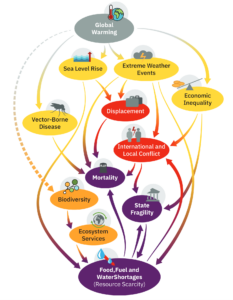
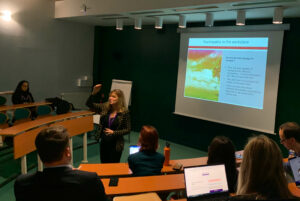
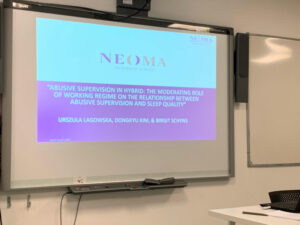
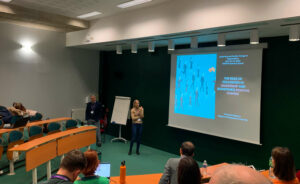
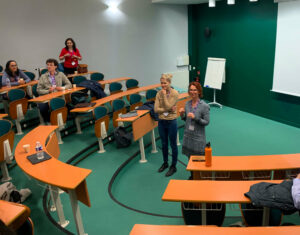

#OneEarth
🌍💡 Renforçons nos connaissances en actions pour façonner l’avenir climatique et socio-environnemental ! 🌱✨
🔆 Ces défis nous interpellent tous, et il est crucial d’approfondir notre compréhension des ressorts personnels, inter-individuels et collectifs (Sparkman et al., 2023; Weber et al. 2023).
Des concepts pertinents, tels que la cécité d’inattention (Mack, 2003), l’habituation (Rankin et al., 2009), et la diffusion de responsabilité (Booth, 2012), nous aident à comprendre pourquoi ces enjeux cruciaux ne reçoivent pas toujours l’attention nécessaire et pourquoi il est parfois difficile d’agir collectivement (Papies et al., 2022).
–> Les recherches sur l’influence sociale nous enseigne qu’en nous regroupant pour relever les défis collectifs, nos actions “individuelles” peuvent se propager comme une onde positive.
–> Surtout, les actions climatiques qui sont en accord avec nos valeurs personnelles génèrent des émotions positives et un sentiment de bien-être, car elles sont perçues comme étant significatives, vertueuses et moralement justes (Steg, 2023).
De nombreuses études psychologiques sur le changement climatique ne se concentrent souvent que sur deux aspects pouvant parfois négliger la justice climatique et les dimensions politiques et sociales qui lui sont associées (Barnes et al., 2022; Omotayo Oladejo et al., 2023).
📌 D’une part, certaines approches mettent l’accent sur la responsabilité individuelle, en se focalisant sur les choix de consommation et les comportements individuels, sans remettre en question les problèmes structurels liés à la production et à la consommation dans nos systèmes.
📌 D’autre part, certaines études se concentrent sur les effets psychologiques du changement climatique sur le bien-être individuel, en cherchant principalement à atténuer ces effets par des stratégies d’adaptation et de résilience individuelles.
✳️ Pour construire un avenir durable, nous devons dépasser les barrières individuelles et developper les démarches collectives pour embrasser des changements transformationnels.
Les collaborations interdisciplinaires et les communications transparentes et inclusives sont indispensables pour susciter un véritable mouvement de changement (Ferdinand, 2019).
Le temps d’agir ne serait-il pas venu ?
Relevons ensemble ces défis !
#ActionClimatique #Durabilité #JusticeClimatique